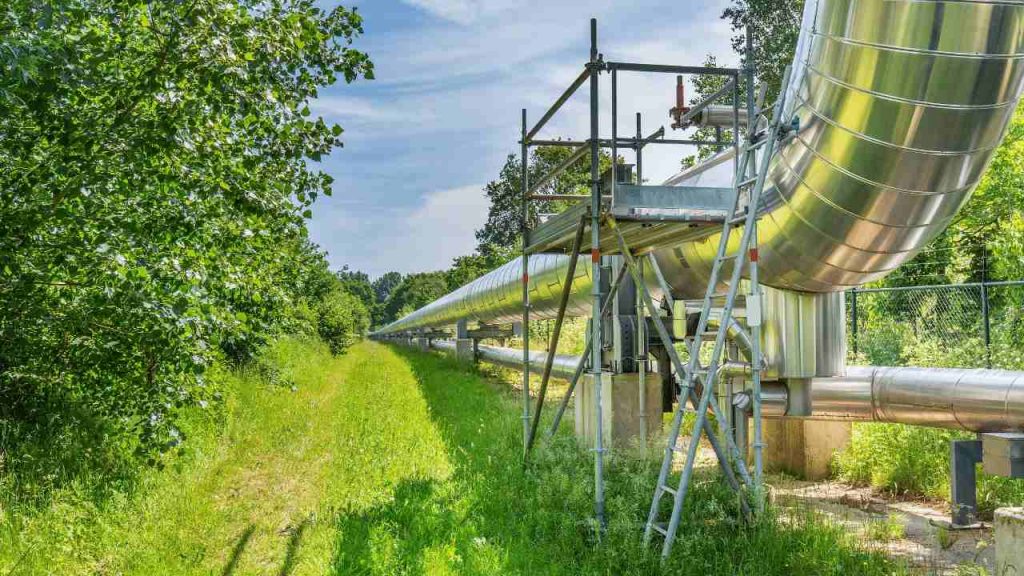
Pipelines are used for the transportation of liquids such as crude oil, refined fuel, and gas. There are underground and surface pipelines. Short-distance systems exist for sewage, water, and beer, while long-distance networks are used for petroleum and natural gas.
Advantages of Pipeline Transport:
1. The operating cost is low once constructed.
2. No physical labour or activity is required to move the goods through pipes.
3. It is safer to transport liquids.
4. Pipelines can be constructed on the load or sea.
5. There is less risk of contamination of the content or the products.
6. Traffic congestion is totally absent in the movement of the products.
6. Traffic congestion is totally absent in the movement of the products.
Disadvantages of Pipeline Transport:
1. It is only suitable for transporting liquids.
2. The cost of constructing pipelines is quite expensive.
3. A lot of wastage may occur if early discovery is not made on a damaged pipeline.
4. Pipelines are subjected to bunkering in recent times.
5. Environments and water may be polluted, by the spilling of the products, if the pipeline bursts or gets damaged.



Responses